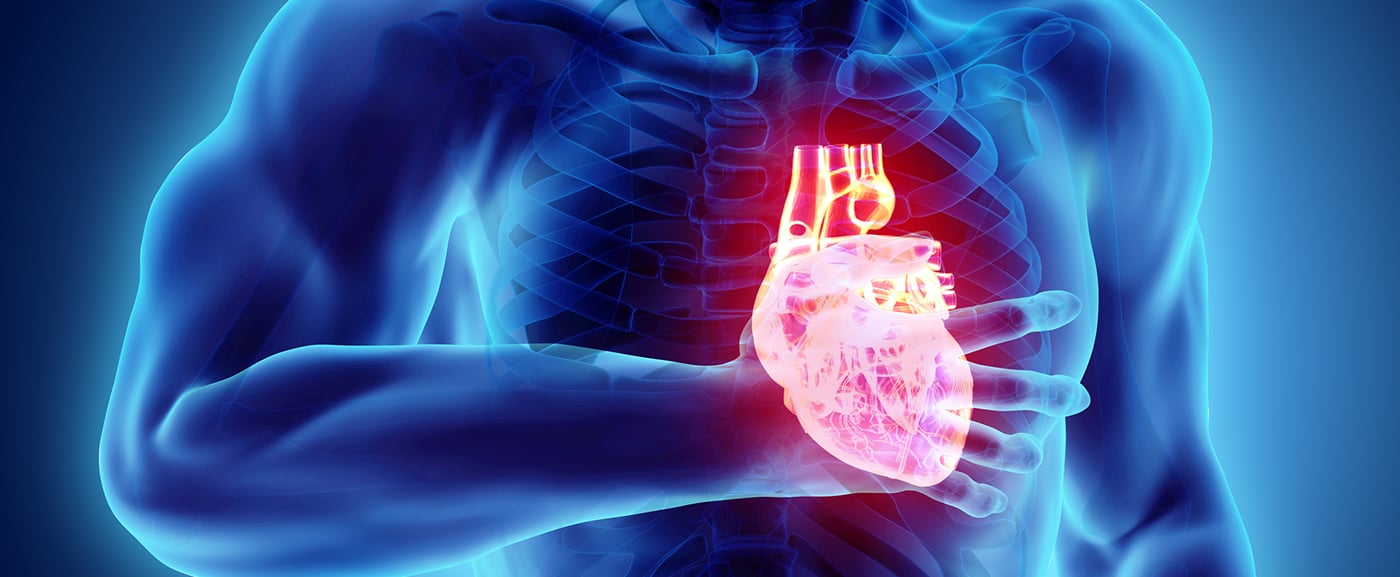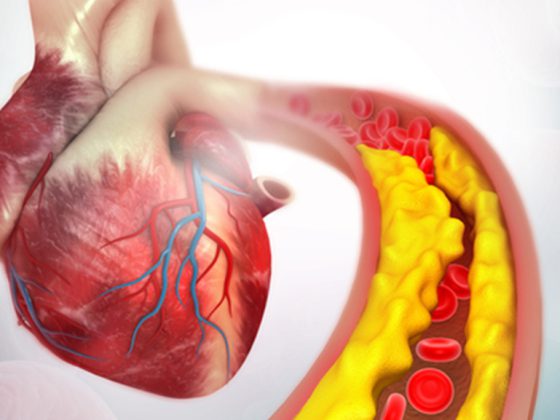The European observational study HEYMANS with almost 2000 patients has proven that patients with very high cardiovascular risk reach the new target values European Society of Cardiology (ESC) with appropriate therapy even under practice conditions (1).
The European Society of Cardiology (ESC) and the European Atherosclerosis Society (EAS) recommend in their treatment guidelines to reduce LDL-C concentration by 50% and to < 1.4 mmol/L in patients with very high cardiovascular risk. When patients have experienced two cardiovascular events within 2 years despite maximum tolerable statin dose, target LDL-C levels are as low as <1.0 mmol/L (2). The Swiss Guidelines for the Prevention of Atherosclerosis 2020 of the Working Group on Lipids and Atherosclerosis (AGLA) of the Swiss Society of Cardiology (SGK) are also based on these guidelines (3).
Despite maximum tolerable statins and ezetimibe dose, in practice many patients cannot achieve these low lipid levels (4).
The PCSK9 inhibitor evolocumab (Repatha®) has demonstrated efficacy and safety in 35 clinical trials and 80 real-world analyses involving more than 41,000 patients with hypercholesterolemia in the PROFICIO clinical trial program: LDL-C levels were reduced by 55 to 75% compared to placebo – and this was achieved with good tolerability (5,6).
Evolocumab in the field test
The question now is whether this is also possible under practice conditions in an unselected patient population. This question is addressed by the ongoing observational study HEYMANS. Interim results, based on a cohort of 1896 patients from 10 European countries, were presented at the ESC Congress 2020 (1):
- Baseline data were collected over a period of up to 26 weeks before the start of evolocumab treatment.
- Follow-up extended up to 30 weeks after completion of evolocumab treatment.
- Most patients (88%) had a follow-up of one year, and 35% had a follow-up of 18 months.
- The average age of the patients was 60 years.
- Pre-existing cardiovascular disease was present in 85% of patients and familial hypercholesterolemia in 44%.
- 19% of patients had type 2 diabetes.
- 66% of the patients were hypertensive,
- 7% suffered from renal function impairment,
- and 51% were former or current smokers.
- 60% of patients had statin intolerance.
- 42% of patients were not receiving any other lipid-lowering therapy at the time of initiation of therapy with evolocumab.
- 43% of patients were treated with a statin and/or ezetimibe at the start of evolocumab therapy.
- The median LDL-C concentration at baseline was 3.98 (3.16 – 5.06) mmol/L.
Rapid and sustained LDL-C reduction of almost 60%.
Within three months of starting treatment with evolocumab, the median LDL-C concentration was reduced by 58% from 3.98 mmol/L to 1.62 mmol/L, and this reduction was maintained throughout the observation period. 67% of patients receiving evolocumab in combination with statins and/or ezetimibe achieved the ESC/EAS-2019 LDL-C target <1.4 mmol/L, and 80% achieved <1.8 mmol/L (Figure 1). With evolocumab monotherapy, 43% of patients achieved LDL-C < 1.4 mmol/L and 57% < 1.8 mmol/L (1).

Figure 1: Achievement of ESC-2019 LDL-C target values. Adapted from (1). Median baseline LDL-C before evolocumab: 3.98 mmol/L; evolocumab in combination with lipid-lowering agents (n = 990).
Conclusion
Two-thirds of patients with LDL-C levels of 3.98 mmol/L can achieve the low ESC/EAS 2019 LDL-C target levels of <1.4 mmol/L using the PCSK9 inhibitor evolocumab together with statins and/or ezetimibe, according to the current interim results of the HEYMANS study. Patients receiving evolocumab monotherapy succeed somewhat less frequently. These data support the early use of evolocumab in combination with other lipid-lowering agents (1).
|
The most important in a nutshell
|
This article was written with the financial support of Amgen Switzerland, Rotkreuz.
Brief technical information Repatha®
CH-REP-0121-00014
References












